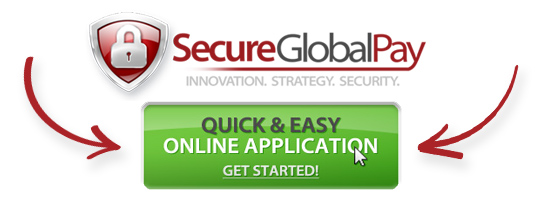
Understanding Payment Processing. The Basics!
Business has been in a state of continuous evolution ever since the Middle Ages. The internet has only served to accelerate this process. The ability to process electronic payments via a variety of payment methods at the point of sale has lit a fire under retail & e-Commerce sales worldwide. Accepting non cash payments & the basic understanding of payment processing is a must!
Since the inception of the credit card processing industry, security has been continually at the forefront of consumer and merchant concerns. From the earliest days of carbon paper receipts to the era of digital print-outs, customers and banks alike have worked to maintain customer confidentiality and protect information. This has had a dramatic impact in shaping merchant services.
Merchant services is an ever-evolving industry. Advancements in technology have had to keep pace with the need for security. With the ability to process credit & debit card payments comes the need for additional security measures when accepting non cash payments.
In the physical world of brick-and-mortar shops, transactions occur face-to-face. Clerks have the ability to check ID, request signatures and consult on-site CCTV in the event of a questionable transaction. But even with these safeguards, fraud still occurs.
Much more so since the inception of the internet. Gone are the days of face-to-face transactions safeguarded by the convenience of physical security countermeasures. With the ability to transact business almost anonymously, the volume of retail criminal activity has grown. Identity theft and fraud are more than common in the online world.
SecureGlobalPay’s expertise is in the area of both retail and online transactions. New to accepting non cash payments? Allow us to provide you with payment processing basics.
The world of payment gateways and online payment processing may seem confusing at first. As the internet has expanded, banks and traditional financial institutions have built in multiple applications and safeguards for merchant use. Below, we provide useful payment processing information to help you get started.
Merchant Accounts
Processing credit card payments online requires a merchant account. This is an account set up specifically through a credit card processing company, bank or payment processor to accept and process credit card orders. Online merchant accounts are an absolute prerequisite to conducting business via the internet.
Without a payment processing merchant account, a business owner cannot process credit card transactions. This means being unable to accept payments via any of the major credit card brands such as Visa, MasterCard or American Express. In order to stay afloat in the digital economy, merchants must meet and overcome this obstacle. SecureGlobalPay can help.

Obtaining a Merchant Account
Think of an online merchant account as a sort of ‘license’ to do business over the internet. Such licenses are, of course, unnecessary. But obtaining a merchant account is often involved and can feel like applying for a brick and mortar business license, building permit or similar.
Merchant accounts are obtained via a formal application process. Merchants usually apply via a sales channel. These channels work for an acquiring financial institution or the merchant services department of a bank. The vetting process for merchant accounts is similar to that of applying for credit. In fact, your financial institution will review your credit as part of the background check for obtaining a merchant account.
It’s important to assure creditors and banks that you do not present a risk. Merchant account providers will usually request copies of financial statements. If your business is still in the planning stages or has just recently opened (e.g., as a “start-up”) then the assessor will occasionally require a detailed business plan. A complete business plan will include a sales strategy and financial projections for the first year.
Fees
Once approved, your merchant account will be activated. Be aware that a merchant account includes fees. This is intended to off-set the risk to the sponsoring bank and acquirer. These fees can be either one-time or in the form of ongoing transaction fees, regularly deducted on a per-item or percentage basis.
Most per-item and percentage fees are passed through the merchant account provider to the credit card-issuing bank. These are assessed according to a schedule of rates called ‘interchange fees,’ which are set by Visa and Mastercard and.
Interchange fees vary depending on the card type and circumstances of the transaction involved. For example, if a transaction is made by swiping a card through a credit card terminal, it will be in a different category than if it were keyed in manually or processed/taken over the phone. The understanding of payment processing will also consist of the understanding of merchant pricing.
Fees act to shield credit card issuers, acquirer’s and sponsoring banks from risks associated with online transactions. Given the remote (i.e., non “face-to-face”) nature of the internet business environment, fraud is common. Banks plan for these risks and so should you.
What is a "Chargeback"?
Imagine you have conducted and logged a transaction. Then you are suddenly notified that the transaction has been labeled as a “chargeback.” What does that mean for you and your business?
Essentially, a chargeback fee occurs when a cardholder disputes a credit card transaction with their card-issuing bank. (This is not to be confused with a refund, which is simply a merchant refunding a transaction.) With chargebacks, the card issuing bank sends through a request to recover money for their cardholder.
In these circumstances a merchant will usually agree to pay a chargeback fee (between $25-$50), for each chargeback that the bank deems valid. This fee covers bank administrative costs.
The most common reason for a chargeback is that the cardholder cannot remember the transaction. Unlike the online environment, the chargeback ratio is very low for transactions in a face-to-face (POS) environment. See Chargeback Management.



